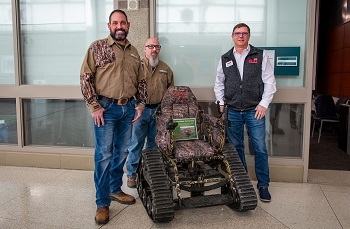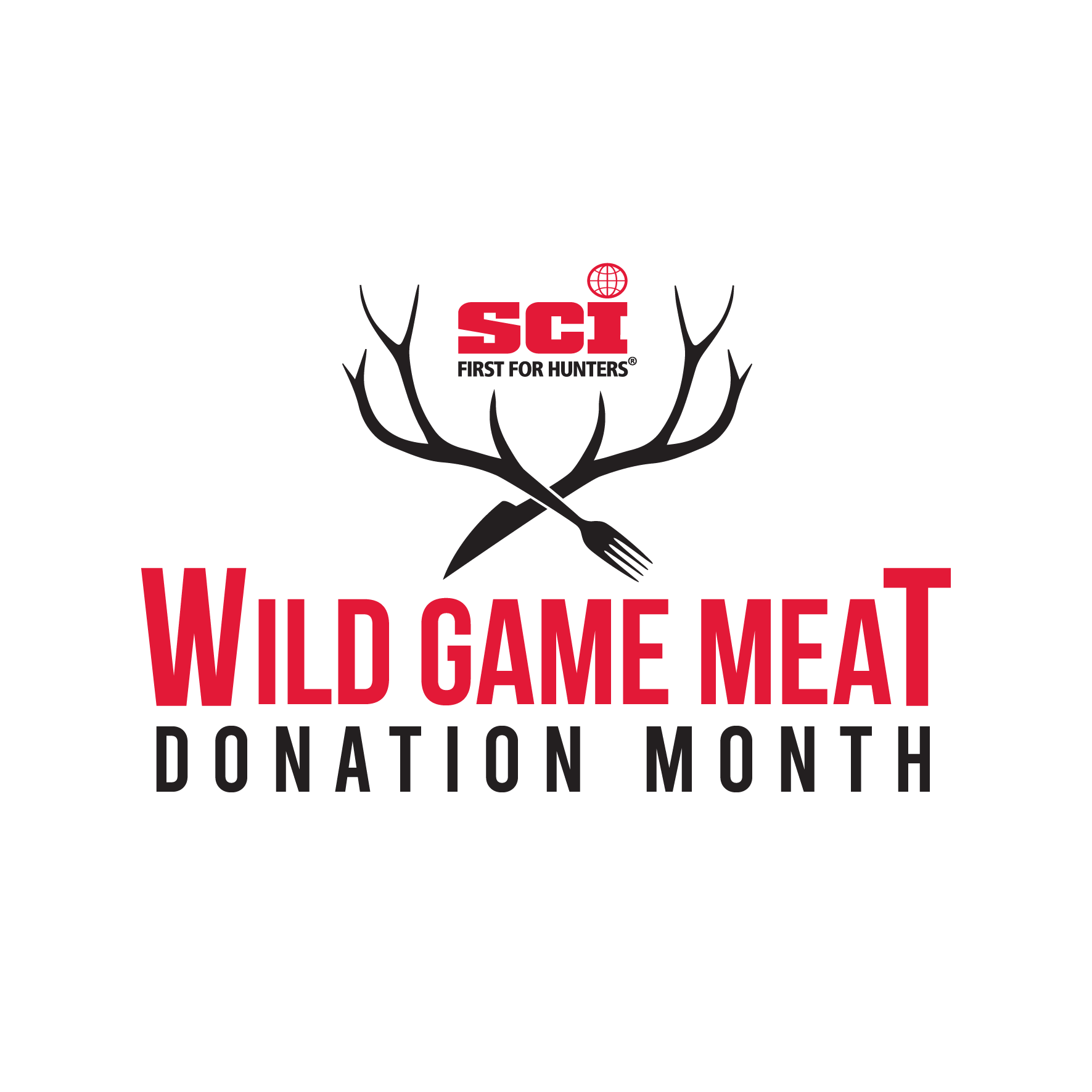Lake Superior Chapter of Safari Club International recently donated $9,500 to the Minnesota Department of Natural Resources (DNR) allowing the department to add a third K-9 unit to its ranks.
Dale Bruder, Lake Superior Chapter SCI president, said of the donation, ‚ÄúWe believe organizations like ours have to work hand-in-hand with conservation officers because we‚Äôre against everything they are against — poachers and violators of any kind. Our board thought it was an excellent idea for the organizations to work together.‚Äù
K-9 “Axel” and his partner, Conservation Officer (CO) Pat McGowan of Hastings, have already completed nearly 12 weeks of human tracking, obedience and evidence search field training conducted by CO Travis Muyres, a certified K-9 trainer and experienced DNR K-9 team handler.
According to Lt. Todd Kanieski, K-9 unit coordinator, the dog comes in “green,” which allows DNR to train the K-9 how the department wants. Kanieski added that the internal “working drive” of both dog and handler are paramount to the success of the K-9 team. “Being a K-9 handler carries a lot of extra responsibility,” he said. “The handler must have a proven history of making solid decisions in the field. The dog must be social around people.”
Conservation officers typically work alone in a 650 square mile patrol area and the DNR working dog model is a lot like the civilian law enforcement patrol dog. It takes a dog of steady, stable character but capable of controlled aggression under certain circumstances, such as on command, when attacked, or when the handler is attacked. The added dimension of a DNR K-9, however, is the ability to sniff out game and fish violations, which is a force multiplier noted Kanieski.
“Searching for trace blood evidence or a shell casing in a large field or wooded area could take multiple officers several hours, but with the right K-9 team, that task can be done in minutes and the area would be more thoroughly searched,” Kanieski said,“We have had great success at finding fish/game evidence and shell casings in the field. That evidence helps us in protecting our natural resources. A K-9 makes sure of that.”
The K-9s are a small part of the DNR Enforcement Division and relies primarily on private donations from organizations such as SCI that have a heavy interest in conservation education and humanitarian projects. The ability to protect natural resources was a big reason why SCI made such a generous donation to the DNR K-9 program. “We see the benefits of establishing good rapport with game agencies, so this fell right in line with what our chapters need to do,” said Derron Wahlen, SCI field coordinator. Funds to assist with the acquisition of a K-9 are raised through SCI chapter fundraisers. “Without the support of the Lake Superior Chapter of the Safari Club…we would not be adding a third K-9 unit,” said Kanieski.


